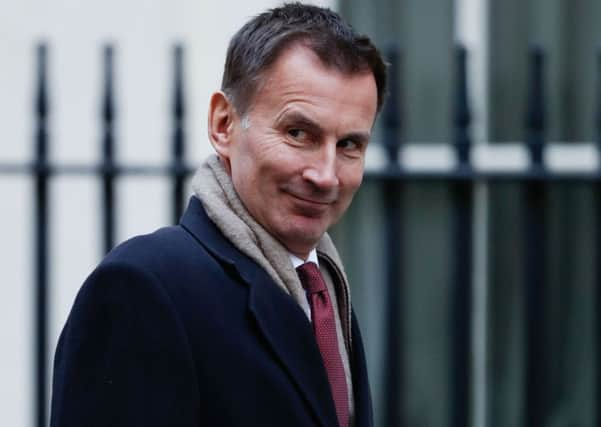Jeremy Hunt to recruit business chiefs to become UK ambassadors


The Foreign Secretary was to announce the initiative in a speech last night in which he was also set to announce plans to recruit an additional 1,000 diplomatic staff in the UK and abroad.
With Brexit just five months away, he was set to tell an audience at the Policy Exchange think-tank in London “we must reinvigorate and expand British diplomacy”.
Advertisement
Hide AdAdvertisement
Hide AdBut his plan was criticised by a Civil Service trade union, which said it risked undermining UK interests abroad.
Asked by the BBC ahead of the speech whether the move was a step towards a US-style system which allowed “cronyism”, Mr Hunt said: “There will be absolutely no conflict of interest allowed and anyone applying for these jobs will apply through normal Foreign Office processes so we can make sure that proper independence is protected.”
He added: “There may be one or two posts where someone who is perhaps chief executive of a FTSE company, who has got strong links with another country, could do a brilliant job representing the UK, building up our trade with another country. We want the Foreign Office to be open to that kind of talent.”
He was set to tell his audience at the Policy Exchange that almost 1,000 new diplomatic jobs will be created, abroad and in the UK, and foreign language training widened, in the largest expansion plan in a generation.
It will include opening up some ambassador roles to external candidates, with Mr Hunt set to say: “The strength of our network is its professionalism, which has given us what I believe is the finest diplomatic service in the world.
“But we must never close our eyes to the approaches and skills of other industries.”
A Foreign Office spokesman said the move “builds on a university outreach programme launched earlier this year which aims to encourage applications from under-represented groups”.
British ambassadors are traditionally civil servants, often with a long career in the diplomatic service. This is in contrast to other countries such as the US, where the president can nominate ambassadors, who then have to be approved by the Senate. US president Donald Trump made Woody Johnson, the billionaire owner of the New York Jets American football team, his ambassador in London last year.
Advertisement
Hide AdAdvertisement
Hide AdDave Penman, general secretary of the FDA union which represents senior civil servants, said: “The role of a diplomat in representing the UK’s interests abroad is much broader than simply trade, which is why they go through years of training and develop such a range of skills.”